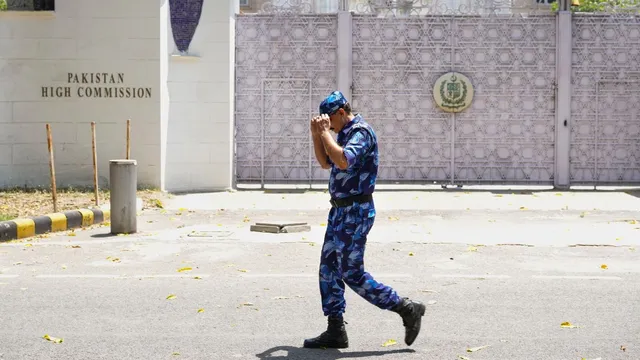- By Ajeet Kumar
- Thu, 24 Apr 2025 03:40 PM (IST)
- Source:JND
After the deadly terrorist attack in Pahalgam, India nnounced a series of strong measures in response, including the abeyance of the Indus Waters Treaty "with immediate effect, until Pakistan credibly and irreversibly abjures its support for cross-border terrorism." Besides, New Delhi also announced four strong measures-- revoking visas of Pakistani nationals, issuing person non-grata for the diplomats, downsizing the strength of high commissions of both sides and closure of integrated Check Post Attari.
As India took stern action, here's a detailed explanation of the impact on Pakistan.
Indus Waters Treaty
The Indus Waters Treaty was signed in 1960, following nine years of negotiations between India and Pakistan, with the assistance of the World Bank, which is also a signatory. The negotiations were initiated by former World Bank President Eugene Black. Recognised as one of the most successful international treaties, it has endured frequent tensions, including conflict, and has provided a framework for irrigation and hydropower development for over half a century. The Treaty allocates the Western Rivers (Indus, Jhelum, Chenab) to Pakistan and the Eastern Rivers (Ravi, Beas, Sutlej) to India. At the same time, the Treaty allows each country certain uses of the rivers allocated to the other. The treaty gives India 20 per cent of the water from the Indus River System and the rest 80 per cent to Pakistan.
Impact of Indus Water Treaty suspension
According to a report published in Pakistani media Dawn, for Pakistan, this structure provides more than water. It provides the predictability needed to build an entire irrigation and water management system around.
One common question that arises in moments like this is whether India can simply “stop the flow” of water into Pakistan. In the immediate term, the short answer is no. A more pressing concern is what happens in the dry season when the flows across the basin are lower, storage matters more, and timing becomes more critical. That is where the absence of treaty constraints could start to be felt more acutely, read the opinion published in Dawn.
Impact of SAARC Visa suspension
Pakistan nationals will not be permitted to travel to India under the SAARC Visa Exemption Scheme (SVES), the Ministry of External Affairs announced aftermath of the terror attack. Any SVES visas issued in the past to Pakistani nationals are deemed cancelled, it said. Any Pakistani national currently in India under an SVES visa has 48 hours to leave India. Notably, hundreds of Pakistani nationals travel to India every year to meet their relatives in Punjab and the adjoining districts. Several also visit India for medical checkups. Recently, a teenage girl returned to Islamabad after receiving kidney-related ailments.
Diplomatic impact
Besides visa suspension, the Indian government has also declared the Defence/Military, Naval and Air Advisors in the Pakistani High Commission in New Delhi Persona Non Grata. It means they have a week to leave India. "India will be withdrawing its own Defence/Navy/Air Advisors from the Indian High Commission in Islamabad. These posts in the respective High Commissions are deemed annulled. Five support staff of the Service Advisors will also be withdrawn from both High Commissions," it added. However, this has a slight impact amid the fact both countries maintain minimum diplomatic relations.

